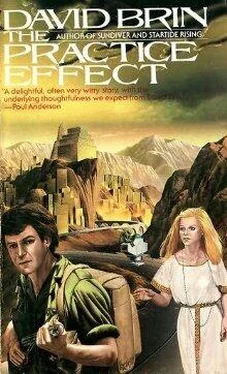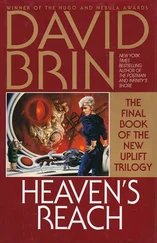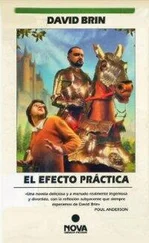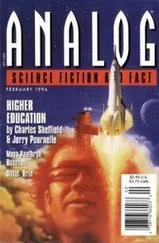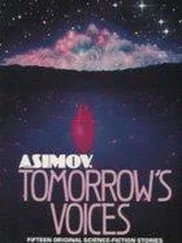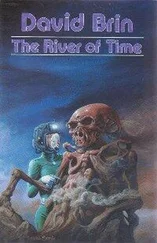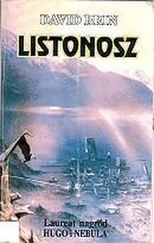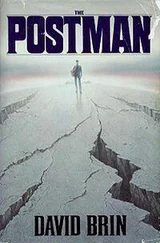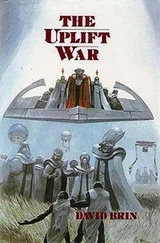David Brin - The Practice Effect
Здесь есть возможность читать онлайн «David Brin - The Practice Effect» весь текст электронной книги совершенно бесплатно (целиком полную версию без сокращений). В некоторых случаях можно слушать аудио, скачать через торрент в формате fb2 и присутствует краткое содержание. Год выпуска: 1984, ISBN: 1984, Издательство: Bantam Books, Жанр: Фантастика и фэнтези, на английском языке. Описание произведения, (предисловие) а так же отзывы посетителей доступны на портале библиотеки ЛибКат.
- Название:The Practice Effect
- Автор:
- Издательство:Bantam Books
- Жанр:
- Год:1984
- ISBN:0-553-23992-9
- Рейтинг книги:4 / 5. Голосов: 1
-
Избранное:Добавить в избранное
- Отзывы:
-
Ваша оценка:
- 80
- 1
- 2
- 3
- 4
- 5
The Practice Effect: краткое содержание, описание и аннотация
Предлагаем к чтению аннотацию, описание, краткое содержание или предисловие (зависит от того, что написал сам автор книги «The Practice Effect»). Если вы не нашли необходимую информацию о книге — напишите в комментариях, мы постараемся отыскать её.
The Practice Effect — читать онлайн бесплатно полную книгу (весь текст) целиком
Ниже представлен текст книги, разбитый по страницам. Система сохранения места последней прочитанной страницы, позволяет с удобством читать онлайн бесплатно книгу «The Practice Effect», без необходимости каждый раз заново искать на чём Вы остановились. Поставьте закладку, и сможете в любой момент перейти на страницу, на которой закончили чтение.
Интервал:
Закладка:
Fixxel’s Practicorium, at the north end of the plaza, was a tall building that reminded Dennis of home.
For one thing, its walls were in large part brilliantly transparent, as if of the clearest glass, slightly tinted to moderate the afternoon sunlight.
Arth explained that the panes had started out as sewn paper sheets, practiced hard during dry seasons, until they were weatherproof and clear. After many years of this they were probably better than any windows on Earth.
Facing the boulevard were displays of men’s and women’s clothes, tools, pottery, and rugs. “Nothing New! All Old and Used!” a sign stated proudly.
The window displays were constantly changing. Workers removed items and replaced them as Dennis watched.
The furnishings on exhibition were stunning. Realistic mannequins were draped in what looked like exquisite silks and brocades. Some of the gowns would surely have gone for thousands at Neiman-Marcus.
“Come on,” Arth said, nudging Dennis. “Don’t give old Fixxel a free push.”
Dennis blinked. He had been entranced by the beautiful things. Then, all at once, he realized what Arth meant. He laughed out loud in admiration of the scam. By just looking at the merchandise, and appreciating its beauty, he had helped just a little to enhance that beauty! No wonder the mannequins looked so lifelike. They were practiced by generations of passersby!
What a racket!
Still, Dennis couldn’t help but wish his camera wasn’t lost with his backpack. The clothing designs alone would be worth a fortune back on Earth.
Under Dennis’s urging, they went around back to peek into the great practice arena at the rear of the building. It was a scene of furious activity.
Teams of men and women poured water into and out of long lines of pitchers, cups, and goblets. Others kept busy digging holes with shovels, and then refilling them, or slicing great logs into kindling, practicing shiny tools in the process.
There was a large open area in which men muffled in layers of clothes sat on half-finished chairs and threw weapons at targets. The crudest knives were being tossed against near-finished suits of glossy leather armor.
No wonder technology never developed here! It didn’t pay to specialize. Wherever a person could practice three or four items at once, it paid. The niceties of concentration seemed less important than keeping as many things busy as possible all the time.
This was the equivalent of an Earthly factory, but something about it struck Dennis as terribly futile. All this hard work would be for nothing if the constant maintenance stopped for just a few weeks or months. Left alone long enough, each of these products would decay to its original state.
Still, Dennis thought, there were no mountains of garbage here, either—no great landfills heaped with worn-out, unwanted things. Almost anything these people created was ultimately recycled to nature.
On neither world, it seemed, was there any such thing as a free lunch.
Later, in another part of town, Dennis and Arth watched a religious procession pass through one of the main squares. A trio of yellow-robed priests and their followers carried a pillowed platform on which a gleaming sword was carried. At the four corners of the palanquin were set freshly severed human heads.
“Priests of Mlikkin,” Arth identified them. “Bloody panderers. They appeal to th’ more unsavory cit’zens of Zuslik with their murderin’ ways.” He spat.
Dennis made himself watch, though his gorge rose at the grisly sight. From what he had picked up during the past week, he could tell that the priests were engaged in a campaign to inure the people of the town to the idea of death and war.
Sure enough, when the procession stopped at a platform set up at one end of the square, the chief priest held up the sword—obviously a product of generations of daily practice by acolytes of Mlikkin—and harangued the rowdy crowd that had gathered. Dennis could not make out much, but clearly the fellow thought little of the “eastern rabble.” When he began speaking ill of King Hymiel, some parishioners looked at each other nervously, but nobody cried out in disagreement.
A number of Zuslikers, though, frowning in distaste, hurried off, leaving the square to the celebrants.
With one exception. Dennis noticed that an old woman knelt in a far corner of the plaza, before a niche in which was set a dusty statue. With age-wracked hands, she cleared away layers of debris and replaced flowers in the twisting, helical pedestal.
Something about the shape of the shrine made Dennis’s neck tingle. He started forward, with Arth trailing along nervously, complaining that this was not a healthy place for them to be.
“What is it?” Dennis asked his companion about the shrine.
“It’s a place of th’ Old Belief. Some say it was here b’fore even Zuslik was founded. The churches tried to have it pulled down, but it’s been practiced so long it’s impossible to scratch. So they dump offal on it an’ have gangs of toughs push around people who try to pray there.”
No wonder the old woman glanced up and around nervously as she went through her devotions. “But why should they care—”
Dennis stopped, still twenty yards away. He recognized the figure at the top of the pedestal. It was a dragon. He had seen its likeness on the haft of the native knife he had found by the zievatron.
In the dragon’s grinning mouth was a malevolent, demoniacal figure—a “blecker,” as Arth identified it. Covered with layers of filth and graffiti, the dragon nevertheless gave a frozen wink to passersby. Its open eye shone with gemstone brilliance.
But it was the pedestal beneath the mythical beast that seized Dennis’s attention. The fluted column was a delicate double helical coil, held together by delicately knotted rails, like the rungs of a twisted ladder.
It was a chain of DNA, or Dennis was the pixolet’s blood uncle!
Dennis felt a return of that nervous feeling of unreality that had plagued him since his arrival on this world. He approached the shrine slowly, wondering how these people ever could have learned about genes lacking the tools or mental disciplines required.
“Hssst!” Arth nudged Dennis. “Soldiers!” He nodded toward the main street, where a troop was strolling in their direction.
Dennis glanced longingly back at the statue, but then nodded and hastily followed Arth into an alley. They watched from the shadows as a patrol passed by. The squad marched along haughtily, their “thenners” raised port high. The big sergeant, Gilm, paced alongside, heaping verbal abuse on civilians not quick enough to get out of the way.
From the way the townsfolk scattered, Dennis presumed Kremer’s northern clansmen still didn’t think of themselves as Zuslikans, though the town had been the Baron’s capital for a generation.
When Dennis next looked back at the little niche-shrine, the old woman had departed, no doubt scared away. Gone also was his best chance to find out more about the Old Belief.
The troop of soldiers was followed by nearly a score of young civilians, downcast and tethered to one another at the wrist.
“Press gang!” Arth whispered harshly. “Kremer’s buildin’ up th’ militia. War can’t be far off now!”
It reminded Dennis that he was still a hunted man. He looked up and saw, high in the sky, a set of broad black wings sailing in an updraft. A pair of small human figures sat in a light wicker framework beneath the glider, steering it lazily toward a thermal south of town. The underside was painted to resemble leathery wings, to take advantage of the traditional dragon reverence that filled most Coyhan fairy tales.
Fortunately, these people had never developed telescopes. Those scouts would not be likely to pick them out in Zuslik’s crowded streets. He and Arth only had to worry about foot patrols.
Читать дальшеИнтервал:
Закладка:
Похожие книги на «The Practice Effect»
Представляем Вашему вниманию похожие книги на «The Practice Effect» списком для выбора. Мы отобрали схожую по названию и смыслу литературу в надежде предоставить читателям больше вариантов отыскать новые, интересные, ещё непрочитанные произведения.
Обсуждение, отзывы о книге «The Practice Effect» и просто собственные мнения читателей. Оставьте ваши комментарии, напишите, что Вы думаете о произведении, его смысле или главных героях. Укажите что конкретно понравилось, а что нет, и почему Вы так считаете.
